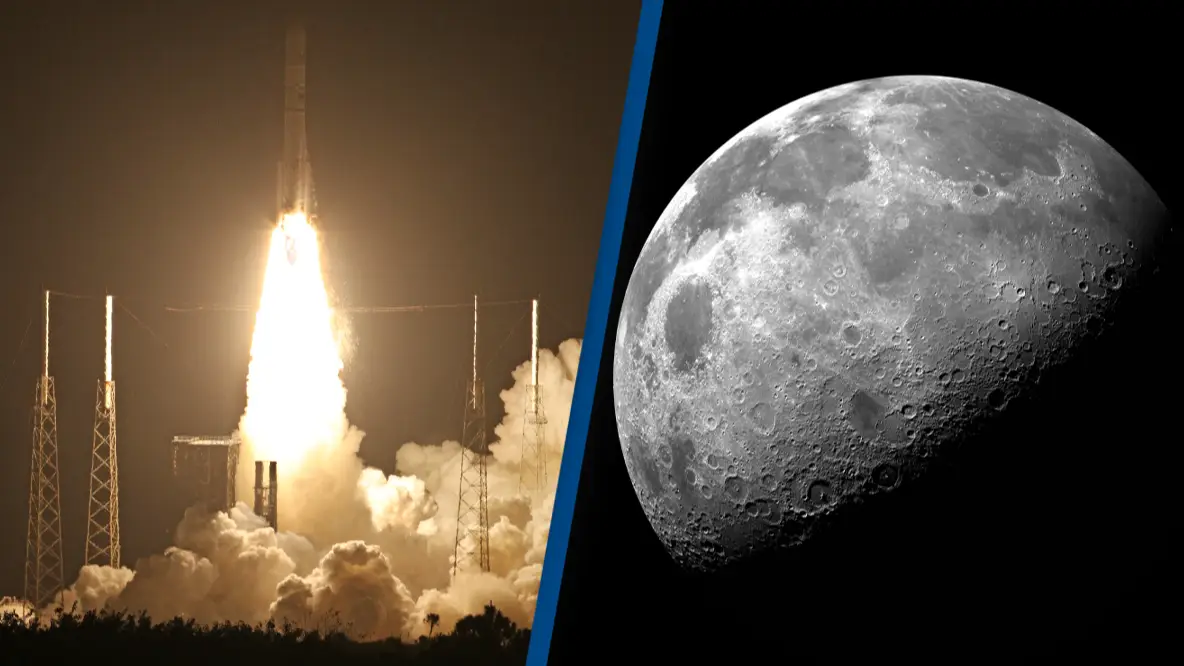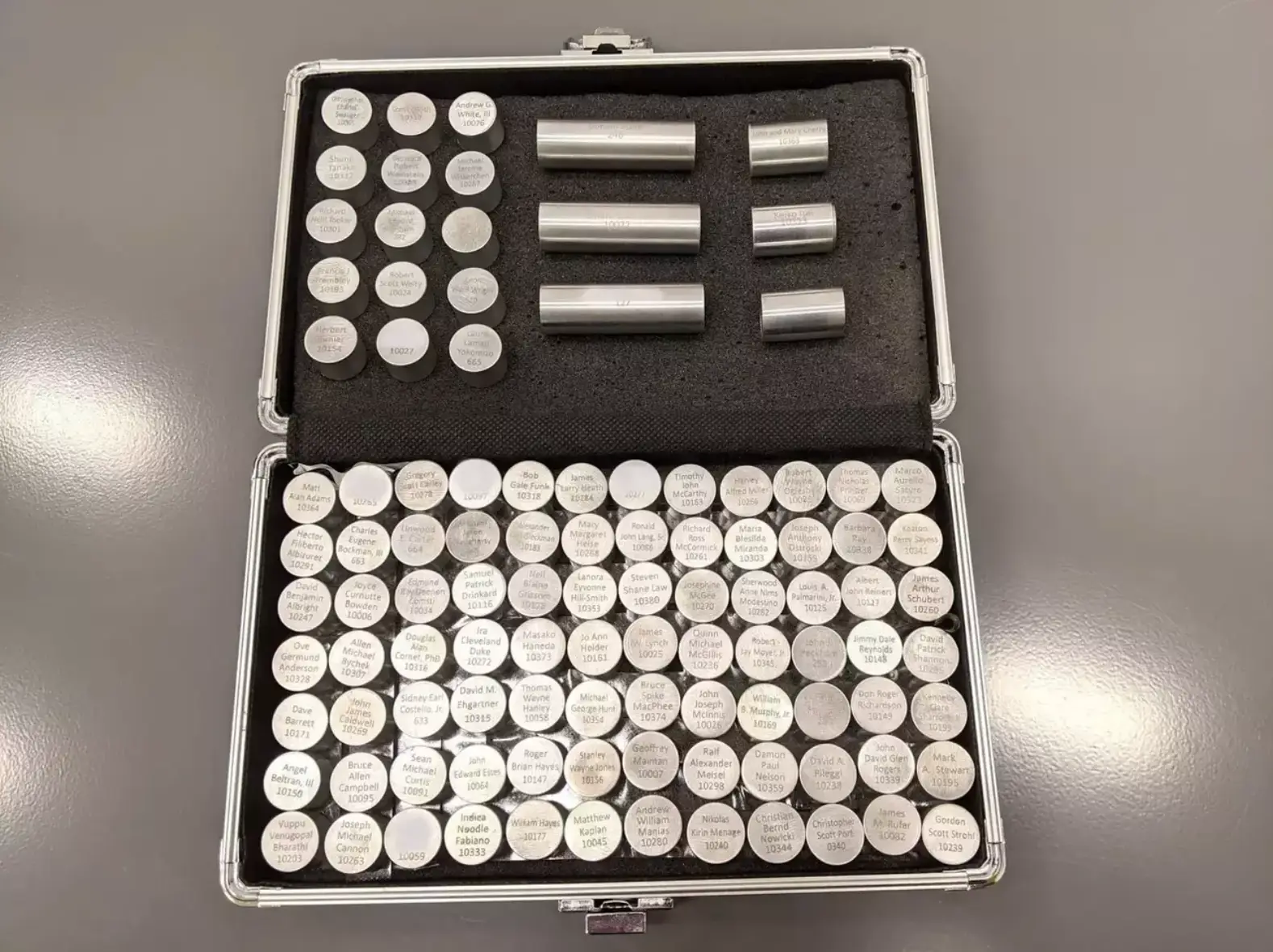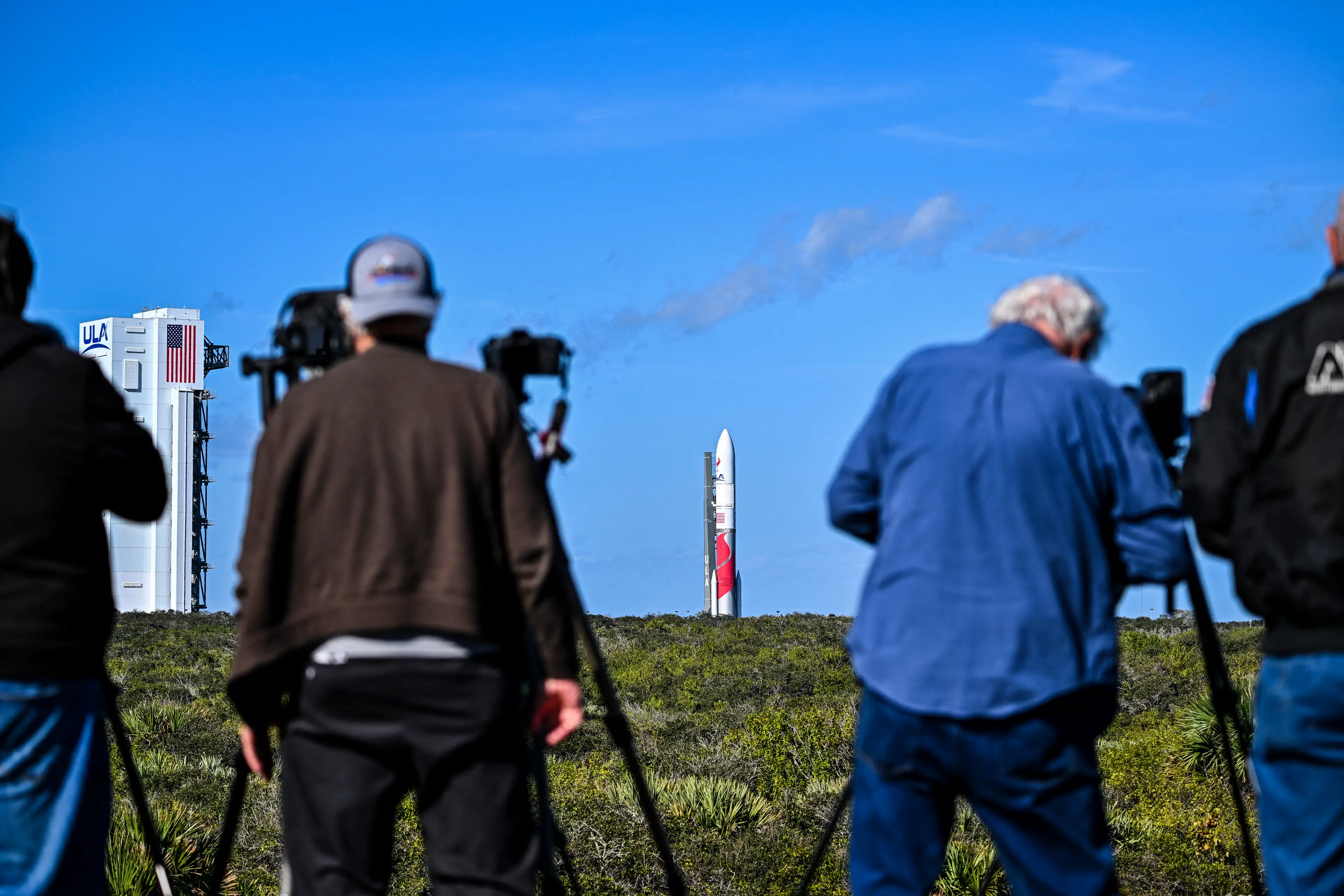
Scientists have given an urgent warning to NASA it could 'destroy' the Moon if the space company presses on with its current plans.
Earlier this week, an expedition project by Texas-based company Celestis, aiming to create a 'permanent memorial' in space, launched.
The rocket made its grand departure from Earth on January 8 at 2.18am - with the DNA samples and cremations being carried in capsules made of titanium and measuring 1/4 and 1/2 inch.
Advert
The spacecraft took off carrying 330 sets of remains, of which 62 were dropped on the Moon.
These have descended into a six-foot-tall and eight-foot-wide device contraption called the Peregrine lunar lander.
As for the remaining 268 capsules, they will then be carried off into outer space where they will continue to orbit the Sun.
The 'permanent memorial' also links in nicely to the Astrobotic mission, which is an entirely different mission in itself.

Currently, Pittsburgh-based Astrobotic is battling a fuel leak from its Peregrine lander, making it hard to maintain stable pointing of the spacecraft.
As a result, mission life could now be measured in just hours, the firm has confirmed.
A statement from Astrobotic states: "At this time the goal is to get Peregrine as close to lunar distance as we can before it loses the ability to maintain its Sun-pointing position and subsequently loses power."
Despite NASA being pretty excited about the mission to start with, the space agency and astronomers have now been warned of the possible long term effects of exploiting the Moon's resources, as both the Astrobotic mission and the 'permanent memorial' mission go on.
Martin Elvis, from the Center for Astrophysics, Harvard & Smithsonian, told the Observer that 'the issue has become urgent'.

He explained: "We need to act now because decisions made today will set the tone for our future behaviour on the moon."
Astronomers are worried that the unrestricted rush to exploit the Moon could cause irreparable damage to vital scientific sites - such as craters.
Astronomer Professor Richard Green, from the University of Arizona, also shared similar views, saying: "We are not trying to block the building of lunar bases.
"However, there are only a handful of promising sites there and some of these are incredibly precious scientifically.
"We need to be very, very careful where we build our mines and bases.”
He added: "The trouble is that it takes a long time to make changes to UN treaties, so we have to act now if we are to have a hope of making sure we have international agreements in place to protect the unique scientific features of the moon and ensure they are not destroyed through thoughtless exploitation."
